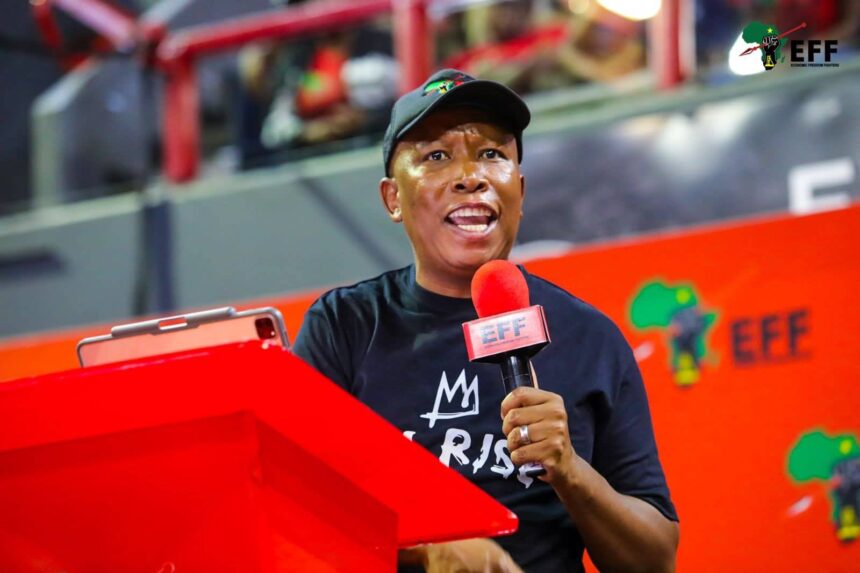The postponement of the 2025 budget speech has sparked controversy and criticism from opposition parties, who have labeled the move as rendering parliament “useless.” Finance Minister Enoch Godongwana was scheduled to present his first budget under the government of national unity on Wednesday, but the speaker of parliament, Thoko Didiza, had to delay the speech after the cabinet failed to reach a consensus on a proposed two percentage point increase in VAT.
The budget is now set to be tabled on 12 March, with Didiza citing unforeseen circumstances and describing the postponement as unprecedented. However, Economic Freedom Fighters leader Julius Malema has condemned the decision, arguing that parliament must have the opportunity to debate and accept or reject the budget.
Malema emphasized the importance of allowing MPs to scrutinize the budget and proposed changes, stating, “Bring it to parliament, let it be debated, let it be amended.” Other opposition leaders, such as ActionSA’s Athol Trollip and the Democratic Alliance’s John Steenhuisen, have also criticized the delay, with Steenhuisen highlighting his party’s rejection of the proposed VAT hike.
Steenhuisen framed the postponement as a victory for the people of South Africa, asserting that the DA’s stance against the VAT increase had influenced the decision. He further pledged to advocate for a budget that prioritizes economic growth over tax hikes or increased debt.
City of Cape Town mayor Geordin Hill-Lewis echoed Steenhuisen’s sentiments on social media, emphasizing the DA’s commitment to protecting the interests of the poor. Despite some conciliatory remarks from parties like the African Christian Democratic Party, opposition figures have expressed frustration over the postponement and the lack of consensus within the coalition government.
As the nation awaits the rescheduled budget speech, tensions remain high among political parties, with calls for transparency, accountability, and effective governance. The postponement has underscored the challenges of managing a unity government and navigating divergent views on critical fiscal policies.








